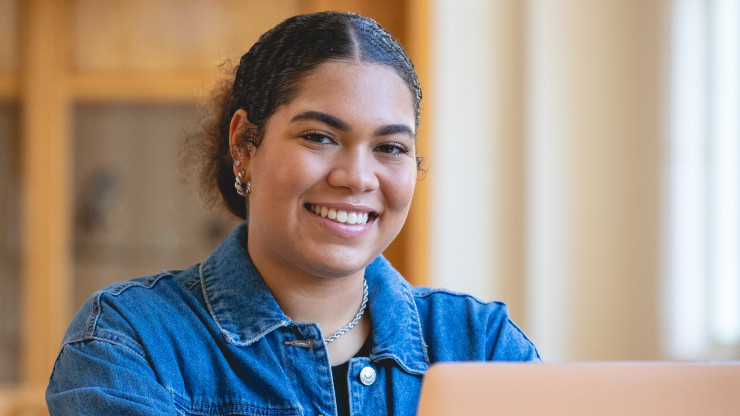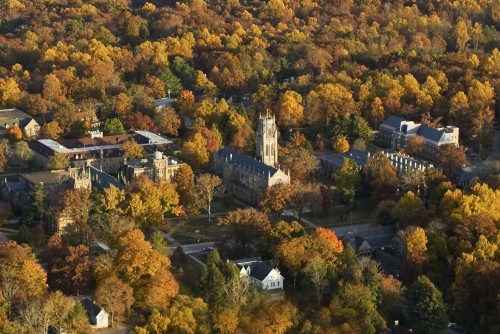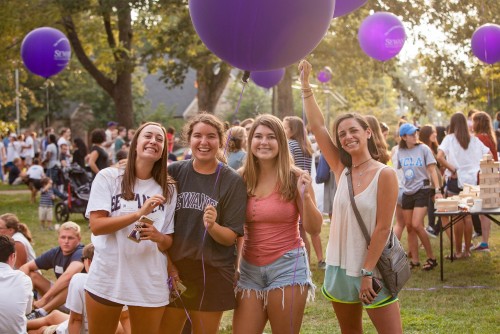Sewanee is full of extraordinary people with fascinating stories. Here they share those stories–in their own words.

Kenedi Clinton, C’24
Public health analyst, Certificate of Global and Civic Leadership candidate, biology major, varsity volleyball player
I spoke to my advisor, Clint Smith, about preparing for a future in public health, and he suggested that I take part in Sewanee DataLab. At that point, I didn’t know much about it. I had no idea what data analysis even involved. But he told me about the program’s focus on social good and that there was an emergency room overuse project. When I heard that I thought, “I need to check this out.” I started doing my own research into what ER overuse is and I realized that this was an opportunity to help a community partner, the South Cumberland Health Network, advocate for tens of thousands of members in their communities.
When DataLab started, we were so concerned with getting our project started but we didn’t even touch it. Our first three weeks were strictly coding, learning R, a programming language for statistical computing, from nine to five every day. We called it boot camp. And we were all wondering, “How is this helping people?” But when boot camp was over, we saw how it was connected, you know, “Our client might want this. You can do this with this graph and make it more visually appealing.”
Then we got our project, and let’s just say it was intense. Inaccessibility to primary and urgent care leads to ER overuse and that causes longer wait times, depletes ER resources, and leaves patients with outsized medical bills. But that lack of access—the fact that South Cumberland residents have nowhere else to go to receive primary care—is what was driving us. We said, “We want to give SCHN something they need. At the end of this, we can’t just say, ‘This is the best we could do, we hope it’s good enough.’” That wasn’t us.
In eight weeks, we took 5.5 million patient visits worth of data, scrubbed it and filtered it, determined a means of identifying overuse, and built out an interactive dashboard for SCHN to visualize how different factors contributed to overuse. We managed to show that ER overuse in the region is more than double the national average, and determine where primary and urgent care centers were most needed and which conditions were most commonly associated with ER visits classified as overuse. SCHN will use this data to shape efforts to improve access to clinics and urgent care centers and guide the types of services they should provide. When I look back on it, I’m sort of amazed at what we were able to do with a passion and three weeks of coding practice.
WANT TO SHARE SEWANEE IN YOUR OWN WORDS? CLICK HERE!
More about Sewanee

A visit to the Domain (it's what we call our 13,000-acre campus) is the best way to determine if Sewanee is a good fit for you. Once you set foot on campus, spend time with our students and professors, or take a stroll through Abbo's Alley, we are confident that Sewanee will find its way into your heart.

Our small classes mean that your voice will be heard, your contribution will be expected, and your opinion will be listened to (and disagreed with, and challenged, and seen from a different perspective, and pushed in a new direction, and considered—and you know what? Maybe we’re both right. See how it works?).

We're a community where everyone has a place and there's a place for everyone. Group study? We'll bring our notes. Rock climbing? We're geared up and ready. Jam session? Sure, we'll play with you. Whatever you want to do, at Sewanee, you'll never have to go it alone. Unless you need your space. Then, we totally get it.

